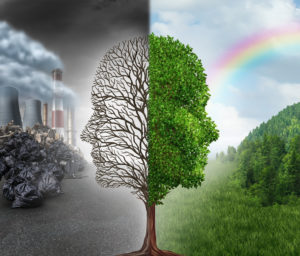
Patagonia is a social enterprise. It’s in the business of saving the planet. With $1 billion in sales, they produce premium outdoor clothing in a highly sustainable way. Their products use nearly 90% recycled materials. To counter the waste generated by fast fashion, they produce long-lasting products and even offer a repair and reuse program. Their entire US business uses 100% renewable energy.
They are heavily into climate activism and give away 1% of their sales for preservation of natural environment. Their founder has decided to direct all future profits to protecting the global environment.
Organisations the world needs
Would you agree that the capitalistic business model that singularly aims to maximise shareholders’ returns is flawed and has run its course? That, single-minded pursuit of profits ignores social and environmental costs; relentless and high velocity action creates a stressful work environment; and lack of clarity of organisational purpose leaves employees unfulfilled.
On the other hand, the social-sector does hugely meaningful work but is constrained in many ways. Their dependence on external funding, inability to attract talent and often lack of efficient systems hampers their effectiveness and scalability.
What we need is a business model that focuses on solving social problems in a financially sustainable way. One that serves as a link between the efficiency and scale of market-based systems and the social impact of philanthropy. Where the financial goals are important, but do not in any way undermine societal goals. We need more social enterprises!
Social enterprises and the power of purpose
Social enterprises are deeply mission-driven organisations. Where the purpose of their existence is not an add-on objective, but is at the very heart of their everyday work. Where ‘doing well’ follows the pursuit of ‘doing good’.
Their sense of purpose is also more motivating and fulfilling for the employees. This matters even more to Millennials who make up nearly 50% of today’s workforce. They find their job more fulfilling when they have opportunities to make a positive impact on social and environmental issues. Many of them are…




















